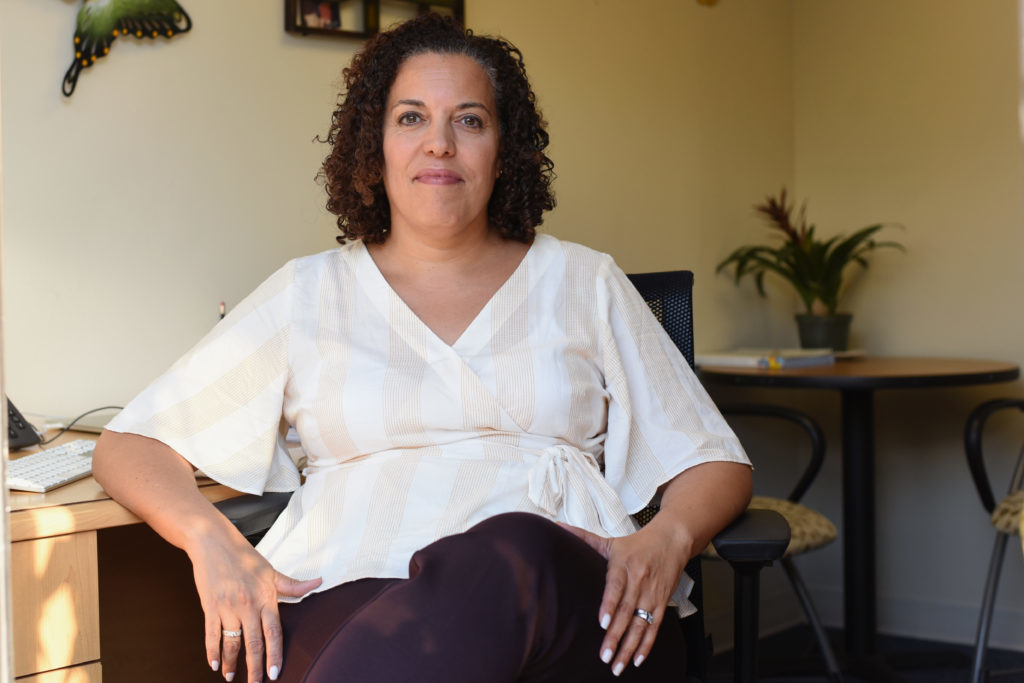Updated: Sept. 30, 2019 at 10:38 p.m.
School health care researchers in the Milken Institute School of Public Health contributed to a set of guidelines detailing how schools across the country can improve mental health care resources offered to students.
Researchers in the Center for Health and Health Care in Schools worked with national and academic institutions to develop criteria, like increased communication between students’ families and health care professionals, for instituting “comprehensive” school mental health systems. Public health faculty and mental health experts said providing high-quality mental health care treatment can boost students’ emotional wellbeing and set students up for success after graduation.
“What comprehensive school mental health support strives to do is to institute systems and practices that promote healthy development in students, identify those who may need help and facilitate access to high quality care with qualified professionals when care is needed,” Olga Acosta Price, the director of the Center for Health and Health Care in Schools, said in an email.
The guidelines state that school mental health systems must include professionals who are equipped to address students’ mental health care needs, “diverse and leveraged” funding opportunities to sustain mental health care programs and evidence-based mental health treatment.
Schools must continually reassess students’ mental health needs and what resources are necessary to meet the changing needs of students, and schools should evaluate the efficacy and quality of the mental health care services offered, the guidelines state.
The guidelines also state that students, families, schools, community partners, policymakers, funders and mental health care providers should collaborate to meet the academic, social and emotional needs of students.
Price said officials will use the guidelines to address the behavioral health care needs of students who attend D.C. area schools through their partnership with the D.C. Department of Behavioral Health.
“Comprehensive school mental health means that a full array of mental health support services are available to all students,” Price said.
She said students with mental health disorders “traditionally” have not received treatment until their condition “significantly” impedes their ability to learn. Price said schools should work to integrate mental health care into existing academic and physical health support networks to ensure a student’s mental health doesn’t interfere with their education.
“Focusing on prevention helps students develop the skills and competencies they need to manage stress and the obstacles they may face using healthy coping mechanisms,” Price said.
Linda Sheriff, the deputy director of the Center for Health and Health Care in Schools, said developing an “emotionally safe” school environment can prevent problem behaviors and reduce stressors, decreasing the need for one-on-one or group mental health services.
She added that a focus on preventing and identifying mental health issues early can ensure that students’ mental health conditions do not worsen to the point where treatment is necessary.
“Comprehensive mental health services recognize the public health approach that prevention has an effect on health outcomes and can decrease the need for more direct services by promoting health,” Sheriff said in an email.
Rebecca Fleischman – the manager of school and community programs at the Child Mind Institute, an organization that aims to improve mental health treatment available to children – said U.S. schools do not offer “adequate” mental health care resources to students.
She said mental health treatments offered to students varies across schools. Fleischman said school psychologists can offer “evidence-based” treatment, like cognitive behavioral therapy, while others rely on techniques like play and art therapy that are less effective in treating mental disorders.
Fleischman added that students with mental health disorders who are unable to access treatment are more likely to drop out of school, run into trouble maintaining a job and become entrapped in a “cycle of poverty” in the future.
“Not only is there a lack of care available, there is a lack of good care, to add a second layer to the problem,” she said.
A 2019 University of Michigan study found that nearly 7.7 million children and adolescents in the United States deal with at least one treatable mental disorder, like anxiety, depression or ADHD. But in 2016, half of U.S. children with mental health disorders did not receive treatment, according to the study.
Daniel Whitney, an associate professor in the Department of Physical Medicine and Rehabilitation at the University of Michigan who co-authored the study, said in a Michigan Medicine press release that untreated mental health disorders have a “debilitating” impact on children’s growth and impedes their transition into adulthood.
“When kids do have mental health treatment, we know that the likelihood of those things happening goes down,” Fleischman said.
Eric Sparks, the assistant director of the American School Counselor Association, said the Center for Health and Health Care in Schools and the D.C. Department of Behavioral Health must communicate about how to effectively introduce mental health personnel into the school setting to prevent unnecessary overlap or gaps in mental health care.
“It’s really important for staff from the public schools and charter schools to be working in collaboration with the behavioral support group to put a system in place that’s actually going to reach kids and going to connect with the resources that are already in the school setting to help students be successful,” Sparks said.
This post was updated to clarify the following:
A previous version of the article stated that the guidelines were created for D.C.-area schools. The recommendations were designed to benefit D.C. schools as well as other schools across the United States.





